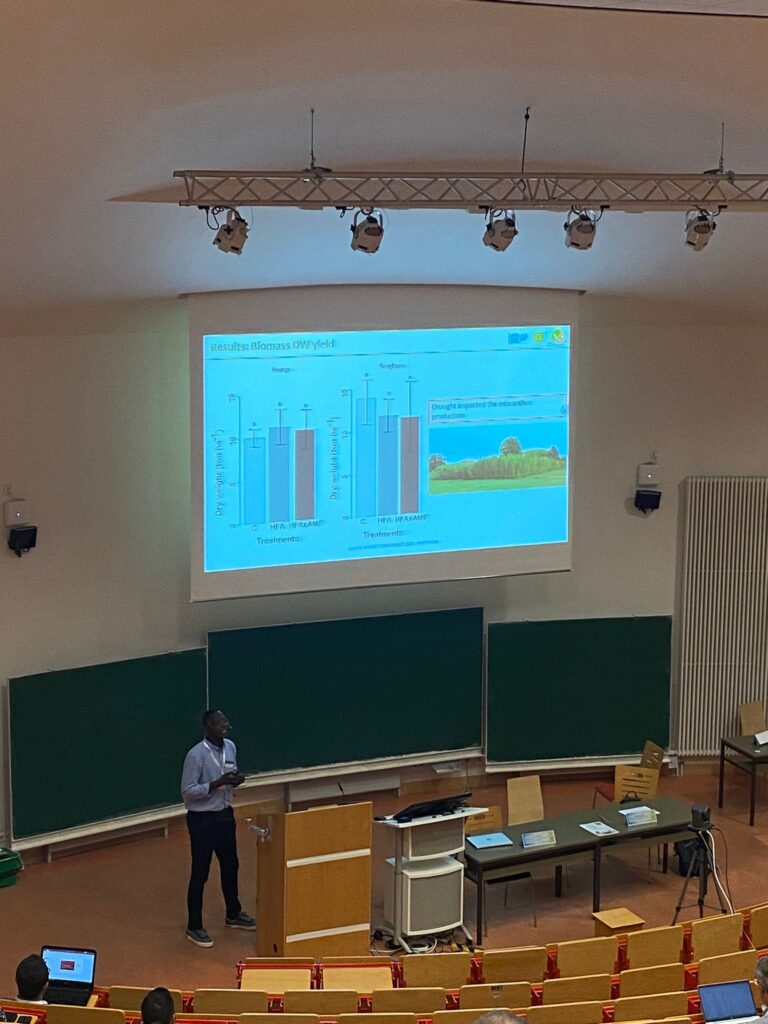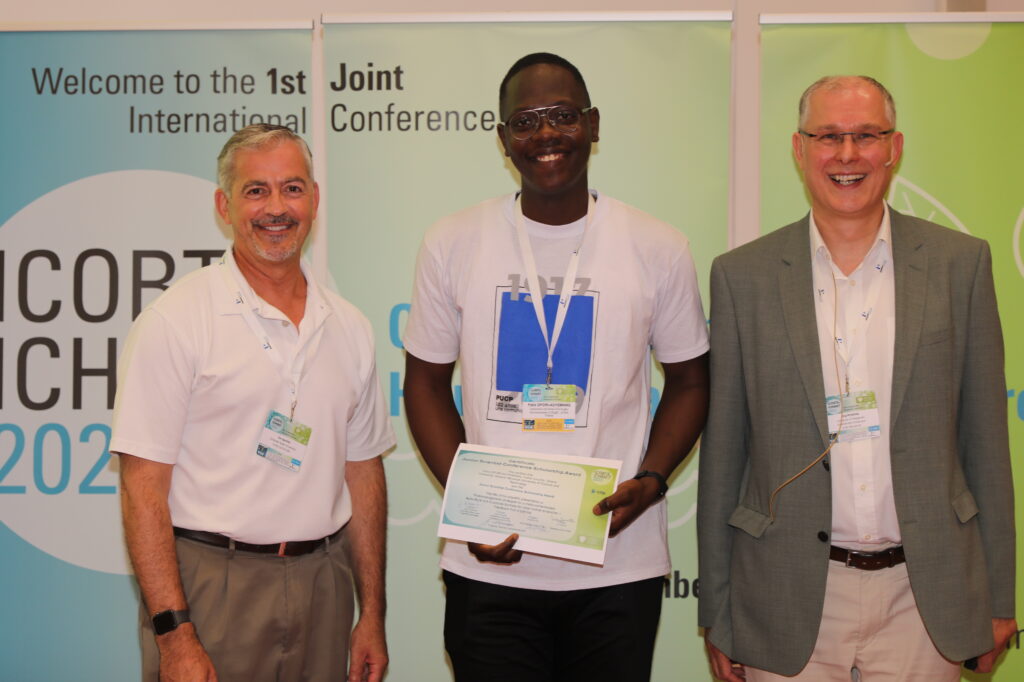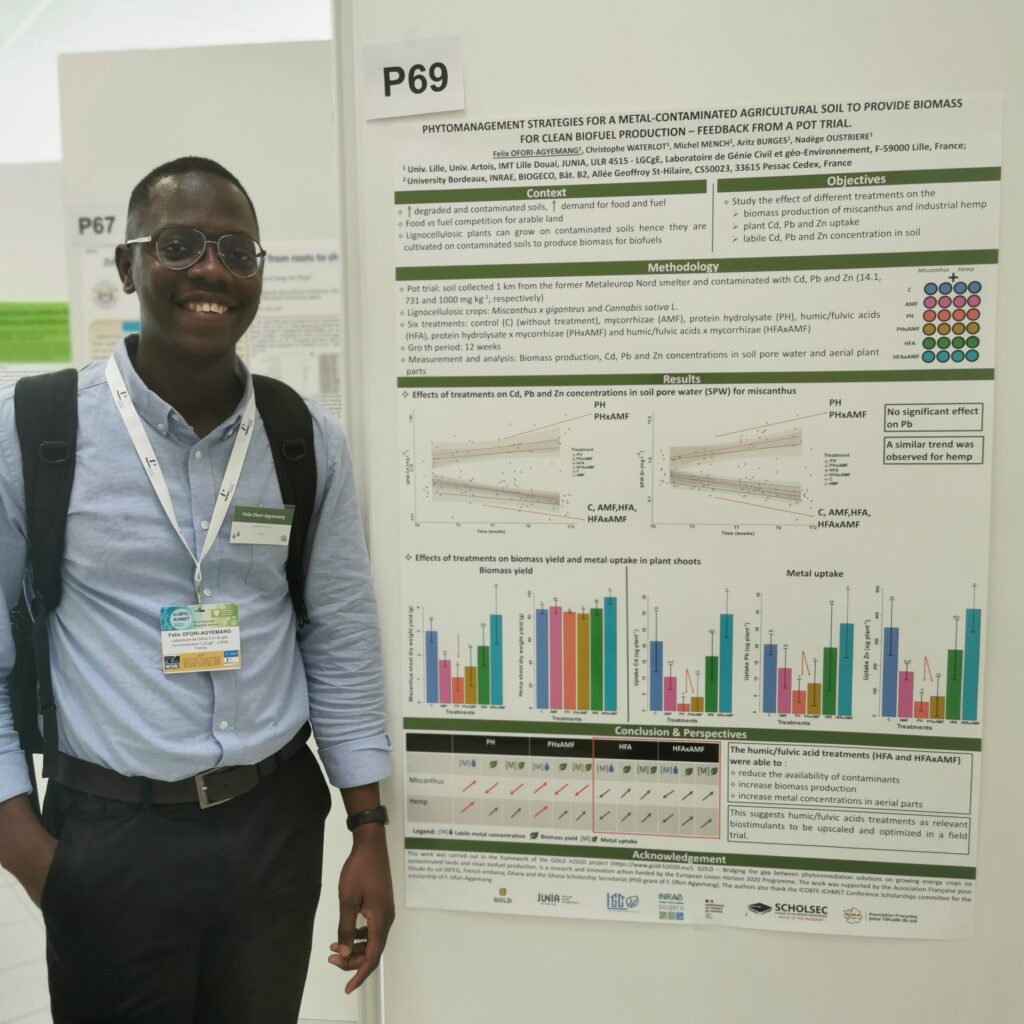On 6th to 10th September 2023, Felix Ofori-Agyemang presented at the 1st Joint ICOBTE-ICHMET International Conference in Wuppertal, Germany.

Not only was Felix awarded with the prestigious Junior Scientist award, but he also presented results from project partners, JUNIA and INRAE, from the pot and field trials, under the framework of GOLD WP1.
The two poster presentations can be downloaded here:
- PHYTOMANAGEMENT STRATEGIES FOR A METAL-CONTAMINATED AGRICULTURAL SOIL TO PROVIDE BIOMASS FOR CLEAN BIOFUEL PRODUCTION – FEEDBACK FROM A POT TRIAL.
- PHYTOMANAGEMENT STRATEGIES FOR A METAL-CONTAMINATED AGRICULTURAL SOIL TO PROVIDE BIOMASS FOR CLEAN BIOFUEL PRODUCTION – FEEDBACK FROM A FIELD TRIAL.
The oral presentation was based on the following abstract:
Phytomanagement strategies for a metal-contaminated agricultural soil to provide biomass for clean biofuel production –Feedback from a pot trial
Strategies to intensify biomass production using mycorrhizal fungi, biostimulants, and their combinations are poorly documented for lignocellulosic crops grown on metal-contaminated soils.
This study aimed to evaluate the yield of Miscanthus x giganteus and Cannabis sativa L. grown on a metal-contaminated agricultural soil amended with biostimulants and/or mycorrhizal fungi, and the plant Cd, Pb, Zn and Cu uptake. A pot trial was conducted using soil collected from a field close to a former Pb/Zn smelter in France (Metaleurop Nord, Evin-Malmaison). Six treatments were applied: control (C), protein hydrolysate (B1), humic/fulvic acids (B2), mycorrhizae (M), protein hydrolysate combined with mycorrhizae (B1xM), and humic/fulvic acids combined with mycorrhizae (B2xM). Metal concentrations in the soil pore water (SPW), soil pH, redox potential, and electrical conductivity were measured over time. Plant parts of miscanthus and hemp were harvested at day 90 and analyzed for metal concentrations.
The results showed that the use of protein hydrolysate (B1 and B1xM) led to high concentrations of Cd, Pb, and Zn in the soil pore water, 2.03, 1.97, 3.43 times higher for miscanthus and 7.8, 1.3, 23.4 times higher for hemp as compared to the control pots, respectively, causing phytotoxicity and decreasing biomass production for both hemp and miscanthus. Conversely, the use of humic/fulvic acids (B2 and B2xM) decreased concentrations of Cd, Pb, Zn, and Cu in the soil pore water, allowing for an increase in biomass production for both hemp and miscanthus.
Overall, this study suggested that humic/fulvic acids can be an effective biostimulant for increasing biomass production in a metal-contaminated soil. These results warrant further investigation in a field trial setting.



